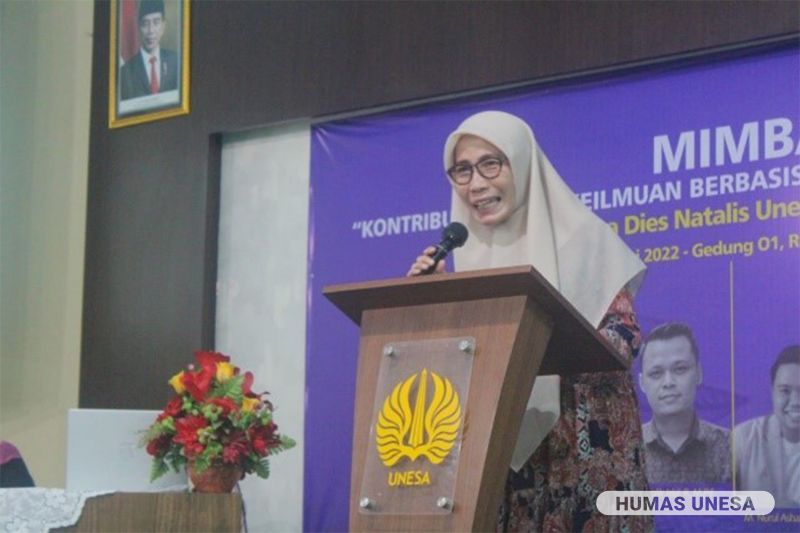
www.unesa.ac.id
Unesa.ac.id, SURABAYA - The second batch of the scientific pulpit of the Faculty of Education (FIP) was held at Building 01 FIP, 2nd Floor, Lidah Wetan Campus, Surabaya on Friday, June 24, 2022. Although the theme discussed was the same as before, namely "Contribution of Study-Based Scientific Fields to Strengthening Educational Science". However, this time, speakers from different study programs and scientific perspectives were discussed.
The resource persons who attended were Dr. Elisabeth Christiana, M.Pd., Guidance and Counseling Lecturer; Dr. Damajanti Kusuma Dewi, S.Psi., M.Sc., Lecturer of Psychology; Dr. Ruqoyyah Fitri, M.Pd., PG PAUD Lecturer; and Muhammad Nurul Ashar, S.Pd., M.Ed., Lecturer for Special Education.
Elisabeth Christiana, on that occasion delivered a material entitled "Cognitive Reappraisal Containing Rukun Values in Javanese Culture to Reduce Emotions That Cause Students' Bullying Behavior". According to him, in Javanese culture, harmony is not just saying "let's live in harmony" as a symbol, but its value must be applied in social life.
Muhammad Nurul Ashar explained the material "Universal Design for Learning. The Future of Inclusive Education in Indonesia?”. At first he showed a short film about a child with special needs. He always uses this method during counseling to elementary school teachers to provide an understanding of the characteristics of students with special needs and what actions the teachers should take.
According to him, it is important to understand, because the number of Special Schools (SLB) is less than 10% of the number of public schools. Thus, the existence of UDL (Universal Design for Learning) is expected to be able to help students, because in Indonesia alone there is only one special school that implements UDL.
Damajanti Kusuma Dewi conveyed the theme "Critical Thinking Skills as Provision for the Millennial Generation". Critical thinking is an important demand of this digital era. In order to think critically there are several things that can be done. Among them can read a lot and observe around, and always ask about reality.
“We can increase criticality by finding out the cause of every incident by looking for concrete reference sources. Because the development of the digital world that is very messaged has caused a lot of hoax news to spread, so we need to be careful when reading everything that is on the internet," he added.
The next resource person, Ruqoyyah Fitri conveyed about "The Concept of Numerical Literacy in the Perspective of Neuroscience to Support the Implementation of the Independent Curriculum in PAUD". There are seven characteristics of an independent curriculum in PAUD. First, have fun playing. Children's play activities must be in accordance with learning outcomes, not just having fun.
Second, readiness to learn. Third, Numerical Literacy; Fourth, Teaching and Learning Practices; Five, Flexible Assessment; Six, follow-up assessment; and seventh, parental involvement. Even in the learning process at school, he continued, parents must know what activities the teacher teaches. With parental learning activities with children, it is hoped that they can find out the achievements of their child's development.
The Head of the Study and Development of Educational Sciences (P3IP) explained that the scientific pulpit activities did not only stop until the second wave, but there were follow-up actions that would not only involve lecturers, but also students.
In addition, the P3IP team also has a program whose implementation is in its third year. Its activities explore educational knowledge, especially based on local wisdom. Not fanatical local wisdom, but local cultural values that can be developed and findings can be compiled into educational supplements based on local wisdom. [UNESA PR]
Author: Nabila Arum
Editor: @zam Alasiah*
Photo: Unesa Public Relations reporter documentation
Share It On:






